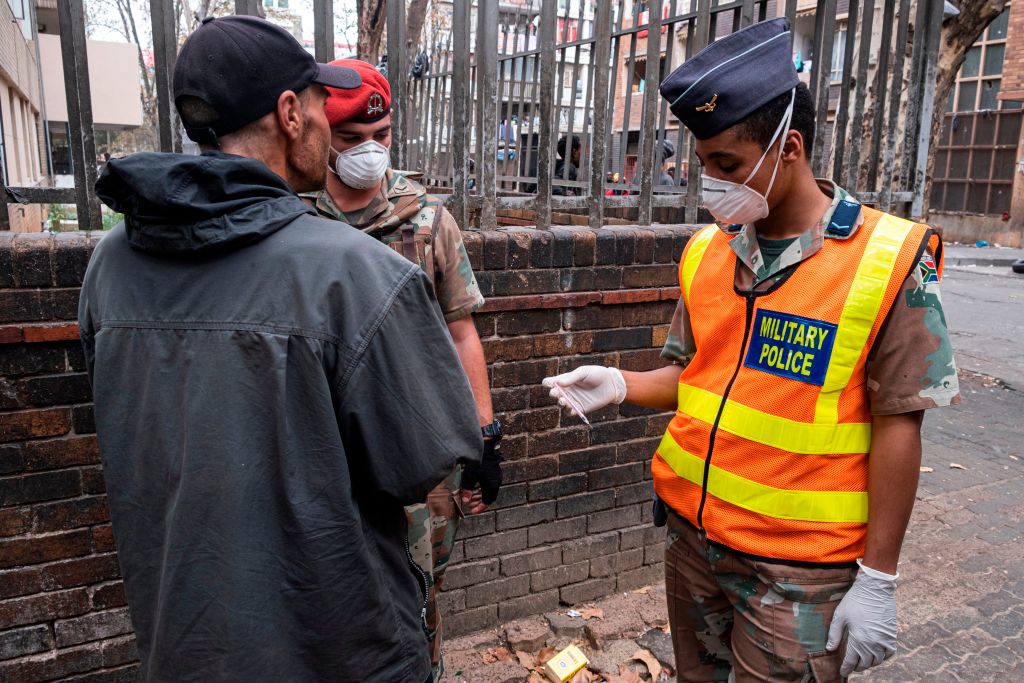ADF STAFF
Recent drug tests conducted by clinics in South Africa show that fentanyl, a powerful synthetic opioid, is spreading rapidly in the country.
Fentanyl was detected in younger people in the Eastern Cape and KwaZulu-Natal. The drug, which produces intense, short-term euphoria, is about 100 times more potent than morphine and 30 times stronger than heroin. It also has been found in the country’s wastewater, leading some analysts to fear that a crisis is unfolding.
Fentanyl users sometimes appear to fall asleep while walking or walk into traffic. Some overdose and die.
Dr. Alanna Bergman, a nursing scientist in the United States, received funding from Johns Hopkins University to import highly precise urine drug tests into South Africa. Bergman’s tests showed that about 32% of the people she tested were positive for fentanyl, South African news agency GroundUp reported.
The drug is used medically to treat patients with severe pain after surgery, but medical records suggest that none of the users tested by Bergman was prescribed legal fentanyl.
“I believe we now have 320 people that we’ve tested,” Bergman told GroundUp in December. “The fentanyl rate remains high. Each day, a few more people are added to the sample.”
The production of illicit synthetic drugs in South Africa has been rising since the mid-1990s, Jason Eligh, senior expert at the Global Initiative Against Transnational Organized Crime (GI-TOC), told New Tang Dynasty (NTD) Television Network.
Mexican cartels are known to operate in the country, but Eligh said China also is a player in South Africa’s growing illicit fentanyl trade.
“China is South Africa’s number one trade partner,” Eligh told NTD. “If we add to that the fact that Chinese organized crime has been really well-established since well before apartheid ended, then you’ve got the history of Chinese presence, as well as a large volume of Chinese-origin trade coming into the country.”
Despite the growing popularity of fentanyl and other synthetic drugs among users and dealers, South Africa’s crisis has mostly “slipped under the radar” of authorities and the public, Dr. Lucy Hindle, an emergency physician in Johannesburg, said during a December podcast by South African radio station Power FM.
“South Africa very much fits into the global drug trade,” Hindle said. “We are a route for drugs to pass through on the way to other countries, but we are also a market. It’s not surprising to me that fentanyl [was] detected in South African wastewater previously, so it has been here before. … That is a sign that it is not legally manufactured fentanyl.”
Dr. Andrew Scheibe, a researcher at the University of Pretoria, co-authored a recent study for the Journal of Illicit Economies and Development regarding the heroin, cocaine and methamphetamine market value in South Africa. Fentanyl is commonly mixed with these drugs, particularly heroin.
About 400,000 people use heroin daily at a cost of about $1.8 million, the study showed. The combined value of the cocaine, heroin and methamphetamine market calculated in the study was about $3.5 billion. Much of this money goes to drug cartels, international syndicates and local gangs.
The addition of fentanyl to other hard drugs is particularly dangerous because its illicit use is not regulated. One dose can cost as little as 35 rand ($1.87). Scheibe said the low cost of opioids likely will stay the same or decline as they become more available.
The drug’s potency depends on where it is made.
“Is it manufactured in a state-of-the-art laboratory with quality control, or is it manufactured in someone’s back garden without quality control?” Scheibe said. “The person who purchases it, do they know the strength of what they’re using? That’s the risk. On the black market, you don’t know what you’re buying and what strength it is.”
He noted that naloxone, a drug used to reverse opioid overdoses, is not widely available in South Africa.
According to Hindle, who has subspecialties in critical care and toxicology, fentanyl will “affect your level of consciousness, and, this is where the dangerous part comes in, affect your respiratory [system] and your ability to breathe,” she said. When people ingest too much fentanyl, “their level of consciousness will drop, they will be breathing less and that may cause them to overdose and die.”
Scheibe argued that current approaches to combating illicit drug use in South Africa are ineffective and called for a whole-of-society approach to address the scourge.
“We should support people, even those who have problematic drug use,” he said. “The law enforcement punitive approach is very harmful. We need public health and social responses.”


